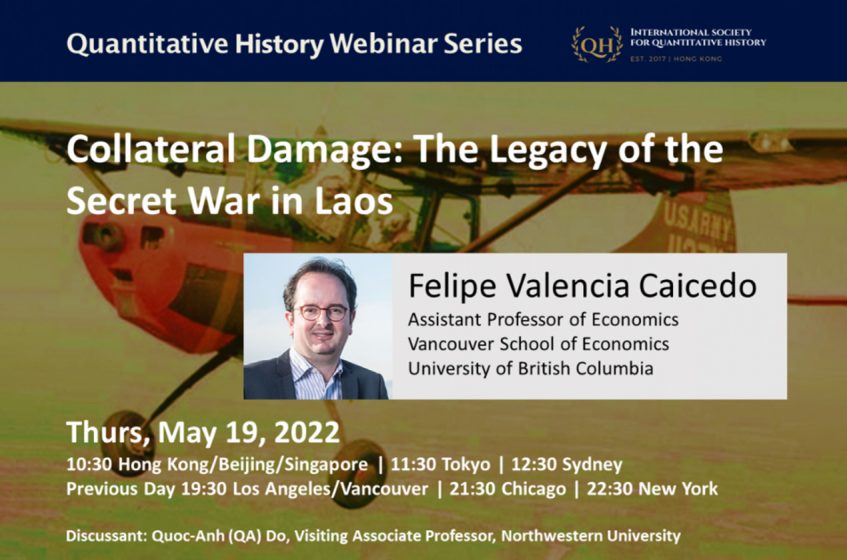
Collateral Damage: The Legacy of the Secret War in Laos
Collateral Damage: The Legacy of the Secret War in Laos
As part of its Cold War counterinsurgency operations in Southeast Asia, the U.S. government conducted a “Secret War” in Laos from 1964-1973. This war constituted one of the most intensive bombing campaigns in human history. As a result, Laos is now severely contaminated with UXO (Unexploded Ordnance) and remains one of the poorest countries in the world.
Felipe Valencia Caicedo and his co-author, in their latest study, document the negative long-term impact of conflict on economic development, using highly dis-aggregated and newly available data on bombing campaigns, satellite imagery and development outcomes. They find a negative, significant and economically meaningful impact of bombings on nighttime lights, expenditures and poverty rates. Almost 50 years after the conflict ended, bombed regions are poorer today and are growing at slower rates than unbombed areas. A one standard deviation increase in the total pounds of bombs dropped is associated with a 9.3% fall in GDP per capita. To deal with the potential endogeneity of bombing, they use as instruments the distance to the Vietnamese Ho Chi Minh trail as well as US military airbases outside Laos.
In this Quantitative History Webinar, Felipe Valencia Caicedo will explain how they show the deleterious impact of bombing campaigns in terms of health, education, structural transformation and rural-urban migration using census data at the village and individual levels.
Felipe’s co-author: Juan Felipe Riaño (University of British Columbia)
Discussant: Quoc-Anh (QA) Do, Visiting Associate Professor, Northwestern University
Live on Zoom on May 19, 2022
10:30 Hong Kong/Beijing/Singapore
11:30 Tokyo | 12:30 Sydney
Previous Day 19:30 Los Angeles/Vancouver | 21:30 Chicago | 22:30 New York
Calculate your local time
The Quantitative History Webinar Series, convened by Professor Zhiwu Chen and Dr. Chicheng Ma of The University of Hong Kong (HKU), aims to provide researchers, teachers and students with an online intellectual platform to keep up to date with the latest research in the field, promoting the dissemination of research findings and interdisciplinary use of quantitative methods in historical research. The Series is co-organized by the International Society for Quantitative History, HKU Business School, and the Asia Global Institute (AGI).
Conveners:
Professor Zhiwu Chen
Dr. Chicheng Ma







